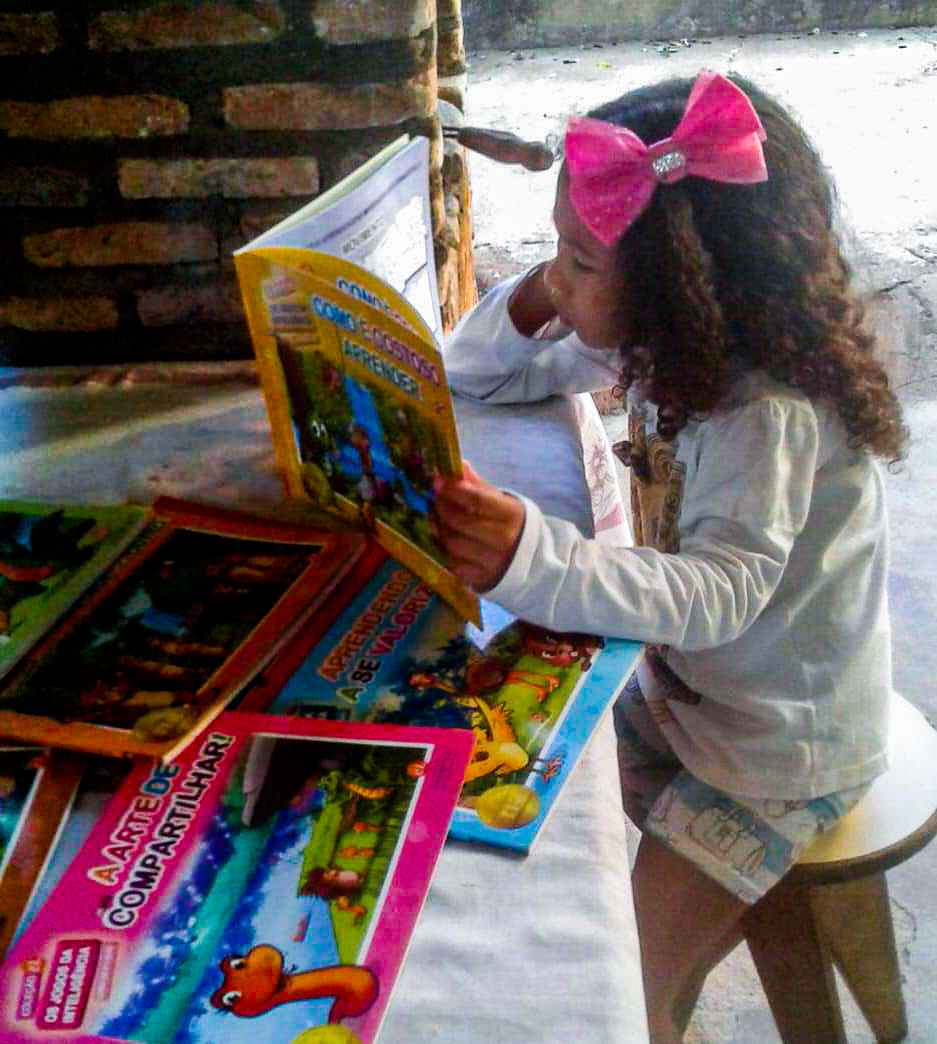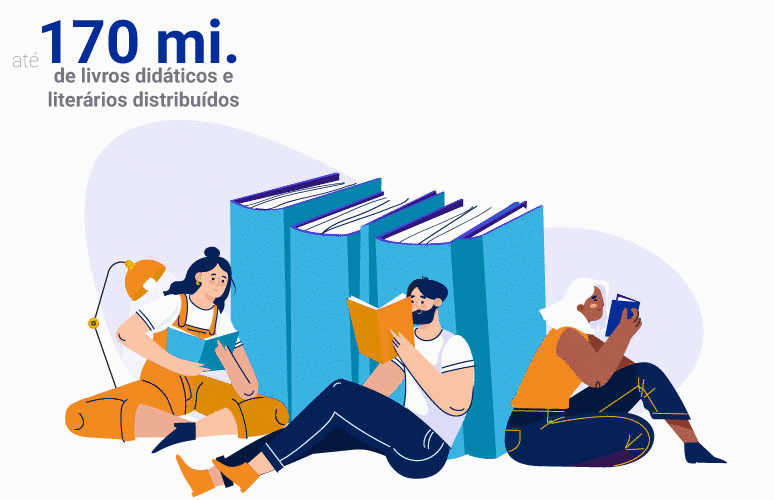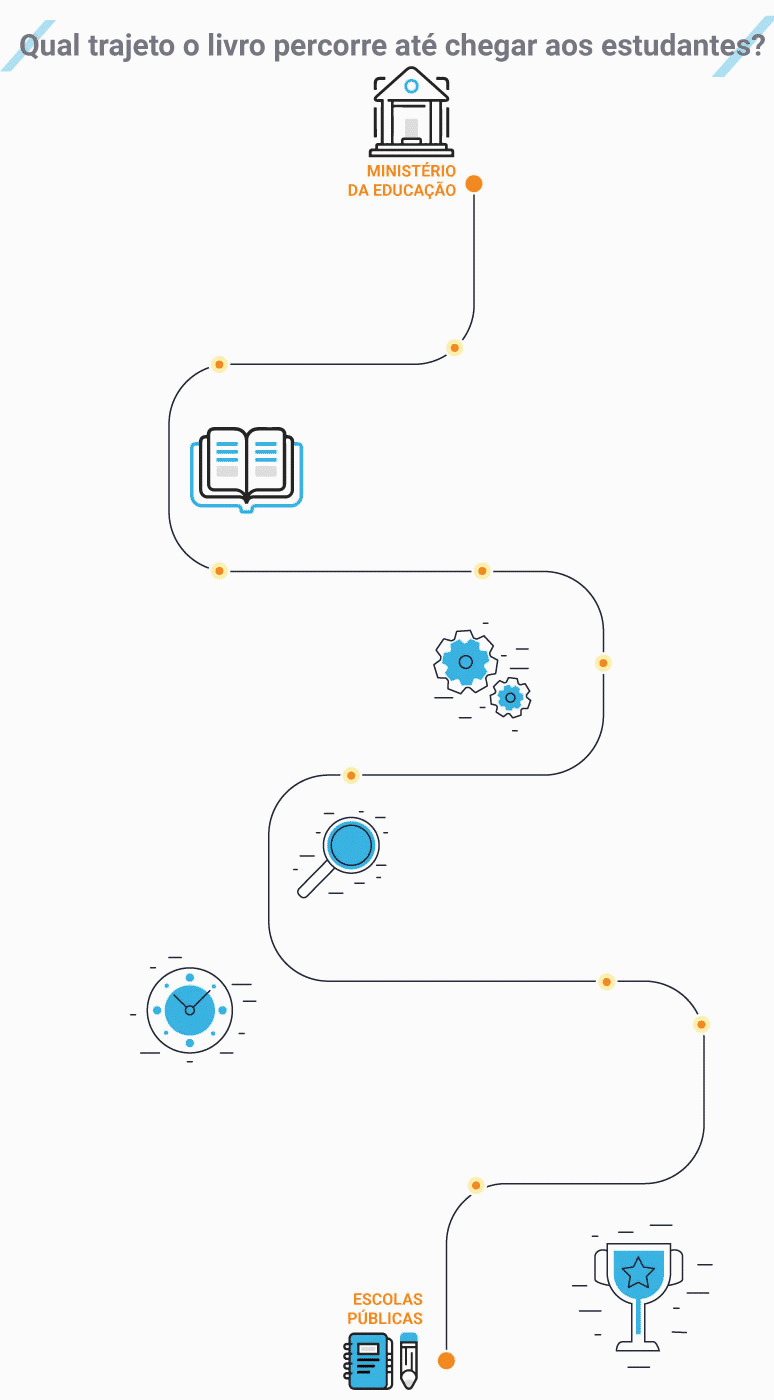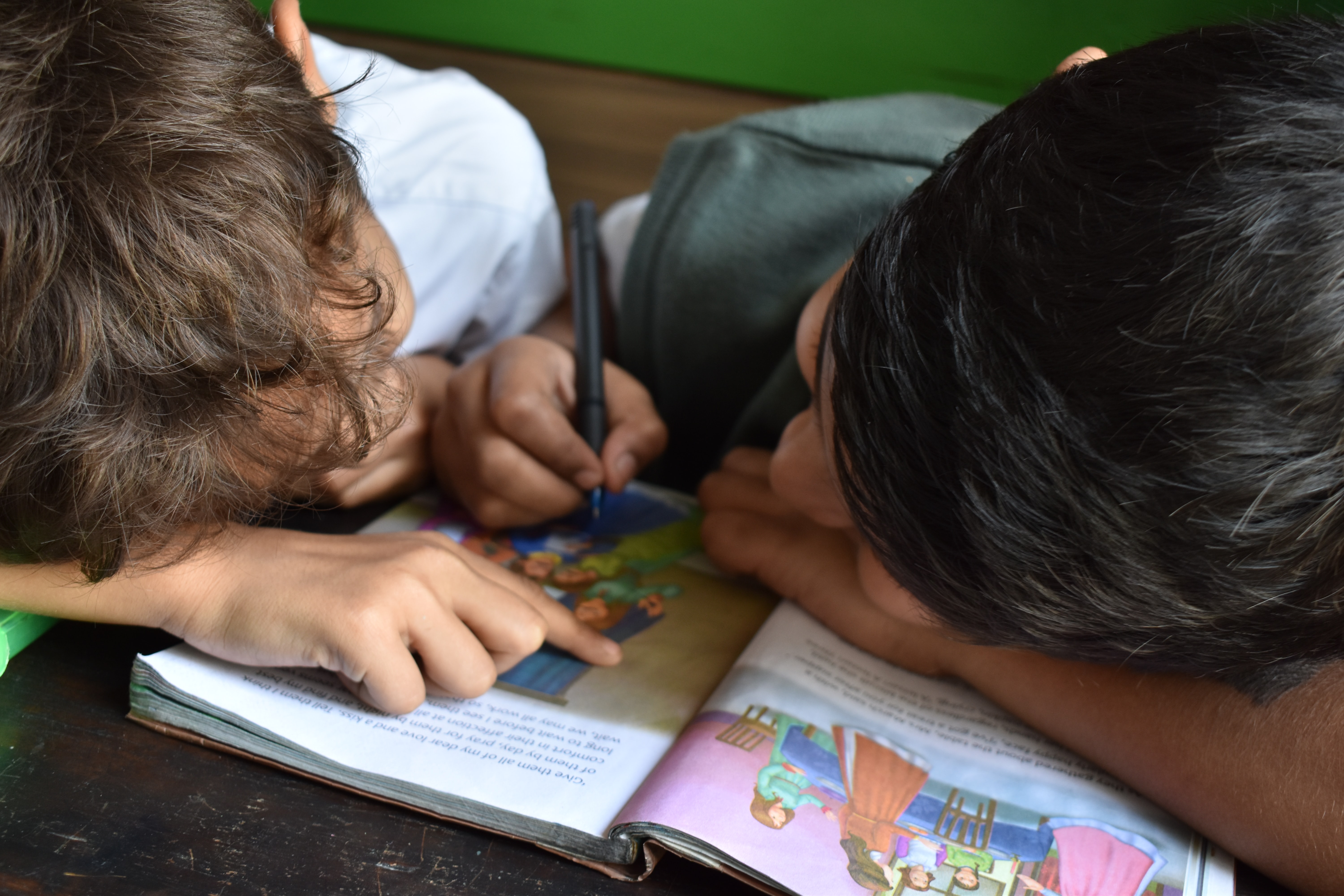RNP supports the MEC in the challenge to take 150 million books to students in Brazil

You have probably heard that reading means giving wings to imagination… Curiosity, imagination and creativity are competencies that little Agatha Rodrigues Sodré, only 6 years old, has enough. Although she is only starting alphabetization, flipping the pages of the books received in school is one of the girl´s favorite habits. Last year she always came home from school euphoric with a new story at the tip of her tongue to tell her family. The mother, Luzilene Rodrigues, remembers well her daughter’s excitement: “She always used to come back home talking about these books, what she had learnt that week in school, during story-telling. She really likes that reading moment. She tells me what she understood from the books, even giving the details!”.
Agatha´s passion for books comes from a cultivated habit last year, in the children´s school classrooms under the regency of teacher Regiane, at school CAIC Assis Chateaubriand in Planaltina (DF) — a satellite city 40 km far from Brasília. Weekly, the students had contact with a new literary adventure. This year, because of the social isolation due to the Covid-19 pandemic, the group readings had to be paused, but at home, the girl´s quarantine days pass with a book under her arm.
Education, a right of all
More than feeding imagination, books, allied to the teacher’s work, are instruments of social transformation. Education is a social right of all Brazilians assured by the Federal Constitution. And taking knowledge by means of didactic, pedagogic and literary works to around 50 million students from more than 146 thousand basic education public schools from federal, states, municipal and district networks is to witness this right in practice. But have you already thought how do these books get to the public schools around entire country?

This is the mission from the National Book and Education Material Program (PNLD). PNLD is in about 5,400 out of the 5,570 Brazilian municipalities, a total of 97% coverage. The platform assesses and provides between 130 and 170 thousand books every year regularly, systematically and free of charge. In addition to books, the Program also takes other support materials to the classrooms, such as pedagogic works, software and educational games, reinforcement and flow correction material, qualification material, and material destined to the school management. To guarantee that students from the entire country can receive materials to study annually, the Ministry of Education (MEC) invests around 1.9 billion Brazilian reais in the distribution program.

It is worth pointing out that didactic and education materials have been distributed for more than 80 years, and this distribution was remodeled by decree no 9.099/2017, which unified the acquisition and the distribution actions in the country by means of PNLD. Since then, the process until a book reaches a student is done by MEC, by means of the National Education Development Fund (FNDE):

The pedagogic assessment is one of the main stages of this process: it assures and guarantees the fulfillment of the objectives and the guidelines provides in the decree that instituted PNLD. This assessment, which qualifies the works that will go to the schools, is grounded on the National Common Curricular Base (BNCC) and tries to take the best and the most updated options of material that will build the educational bases for these benefited students. With these options, the educators from each school choose the materials that best adapt to the adopted methodology.
“The process of assessment an educational work is extremely thorough. The details and the content are analyzed. It takes about 120 days just for preparation and other 176 days to assess the materials. There are seven assessment levels and all our assessment processes are carried out by masters and Ph. D. in education, specialists in PNLD and BNCC”, the director of the Basic Education Department (SEB) of MEC, Sebastião Vitalino, explains.
An even bigger challenge
The program is one of the biggest in the world and serves students from children´s education to high school in the entire country. As if this was not a great challenge itself, the Ministry of Education, within the scope of the Basic Education Department, undertook one more task. This time supported by the National Education and Research Network (RNP): the task to modernize the platform, where everything starts, in presentation and assessment of works by MEC.
 The responsible for the Program, Sebastião Vitalino, tells that he realized the need of an updated platform with more features, when he saw the amplitude and the challenges of the material distribution closely. “Our challenge is to instrumentalize the assessment of this public policy, which is so important and successful for the country. We focus on benefiting those 50 million students. Therefore, it is a huge gain for the Brazilian basic education. We can say that this is even an ambitious project because it is a solution as great as our students”, he reinforces.
The responsible for the Program, Sebastião Vitalino, tells that he realized the need of an updated platform with more features, when he saw the amplitude and the challenges of the material distribution closely. “Our challenge is to instrumentalize the assessment of this public policy, which is so important and successful for the country. We focus on benefiting those 50 million students. Therefore, it is a huge gain for the Brazilian basic education. We can say that this is even an ambitious project because it is a solution as great as our students”, he reinforces.
With the technological solutions offered by RNP to the PNLD platform, the processes that compose this important gear of the Brazilian education system will be optimized to improve and provide efficiency to the assessments. To understand the needs of users, who work on PNLD by means of creation of an innovative and successful solution, RNP will adopt Design Thinking techniques, a modern approach centered at people, capable of revealing a complete vision of the challenge or problem to be worked on. This different way of solving problems, developing products and thinking projects consists of four steps:

In addition, RNP’s proposal for the solution design is guided to innovation and use of state-of-the-art technology for modernization of the PNLD processes, and one of the assumptions for the project is the works to be available in cloud, in a digital library concept, where they can be accessed and found more easily.
 RNP Solutions manager Roosevelt Benvindo proudly assesses that the implementation of this project has a fundamental and challenging role for the improvement of the assessment process with consequent improvement of the quality of the educational books that arrive at the public schools in Brazil. “For this purpose, we will adopt technological vanguard solutions, always considering innovation allied to the best cost-benefit for the Federal Public Administration (APF)”.
RNP Solutions manager Roosevelt Benvindo proudly assesses that the implementation of this project has a fundamental and challenging role for the improvement of the assessment process with consequent improvement of the quality of the educational books that arrive at the public schools in Brazil. “For this purpose, we will adopt technological vanguard solutions, always considering innovation allied to the best cost-benefit for the Federal Public Administration (APF)”.
 According to RNP Solutions deputy director Antônio Carlos Fernandes Nunes, participating in a structuring action for education in the country, benefitting and making it possible to include millions of students from all regions in the learning process, is a great responsibility and privilege for RNP. “In the vision of the development process of the solution for this initiative, we propose adoption of innovative and agile approaches that can bring valuable results in a shorter time”, he explained.
According to RNP Solutions deputy director Antônio Carlos Fernandes Nunes, participating in a structuring action for education in the country, benefitting and making it possible to include millions of students from all regions in the learning process, is a great responsibility and privilege for RNP. “In the vision of the development process of the solution for this initiative, we propose adoption of innovative and agile approaches that can bring valuable results in a shorter time”, he explained.
